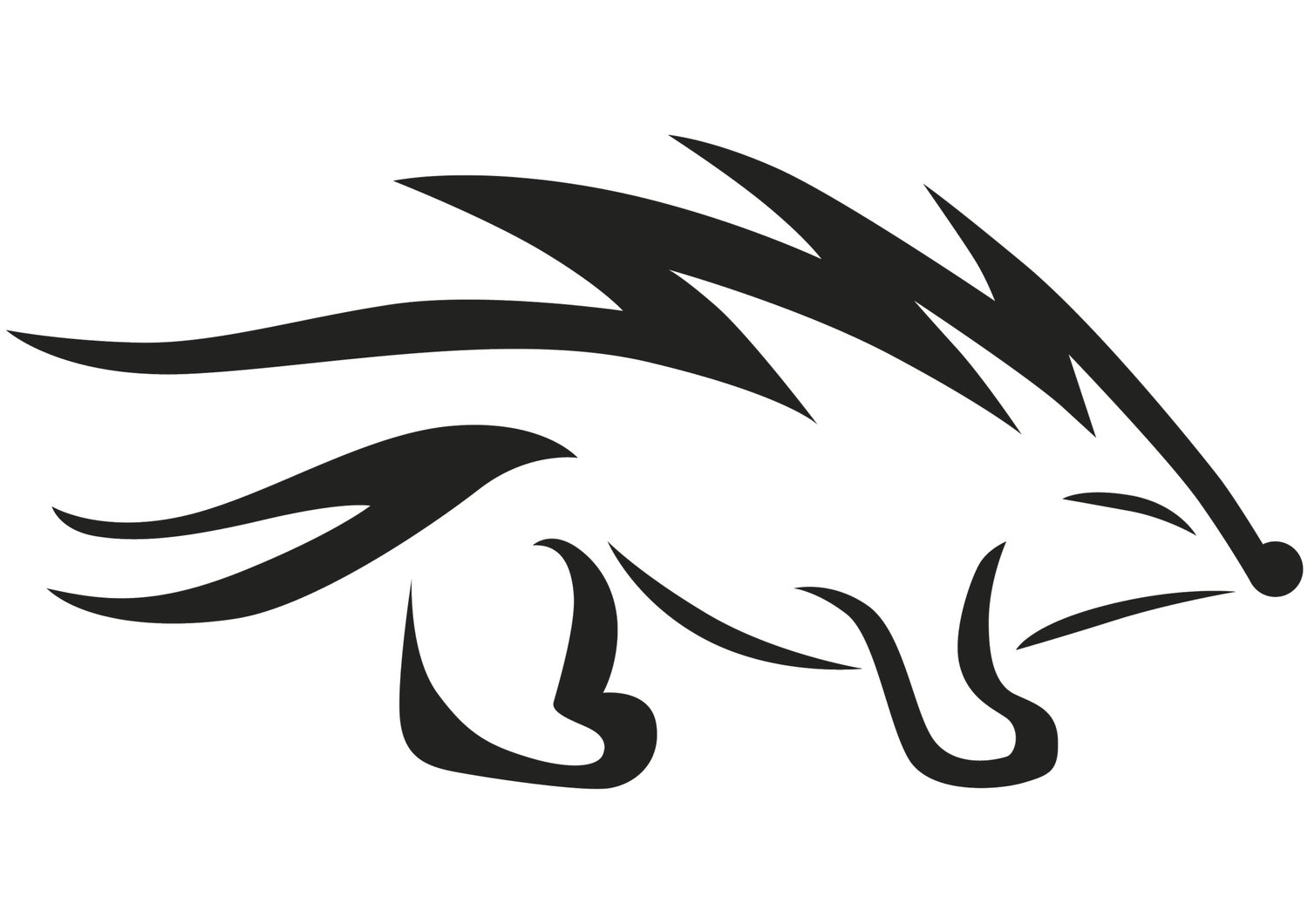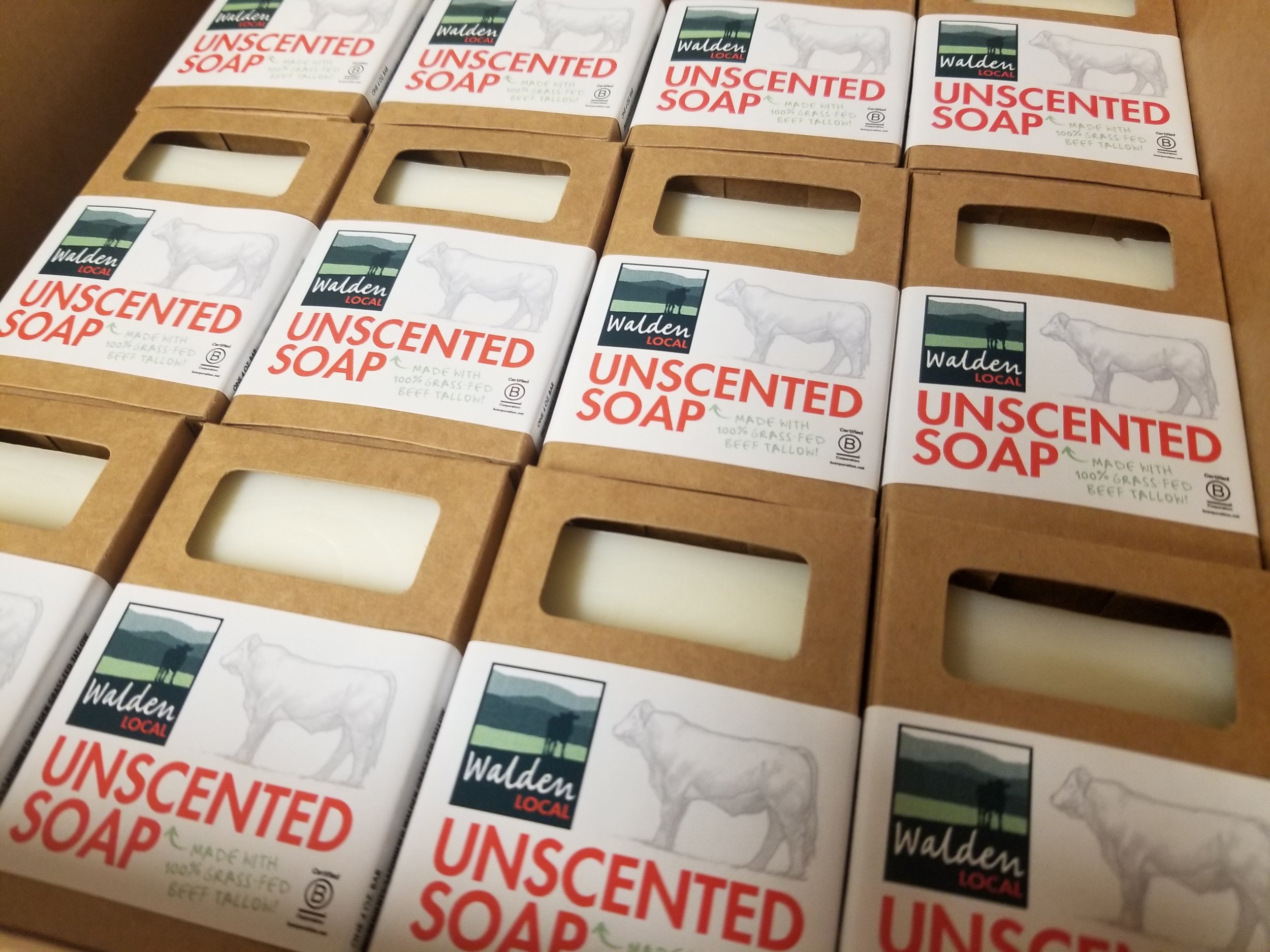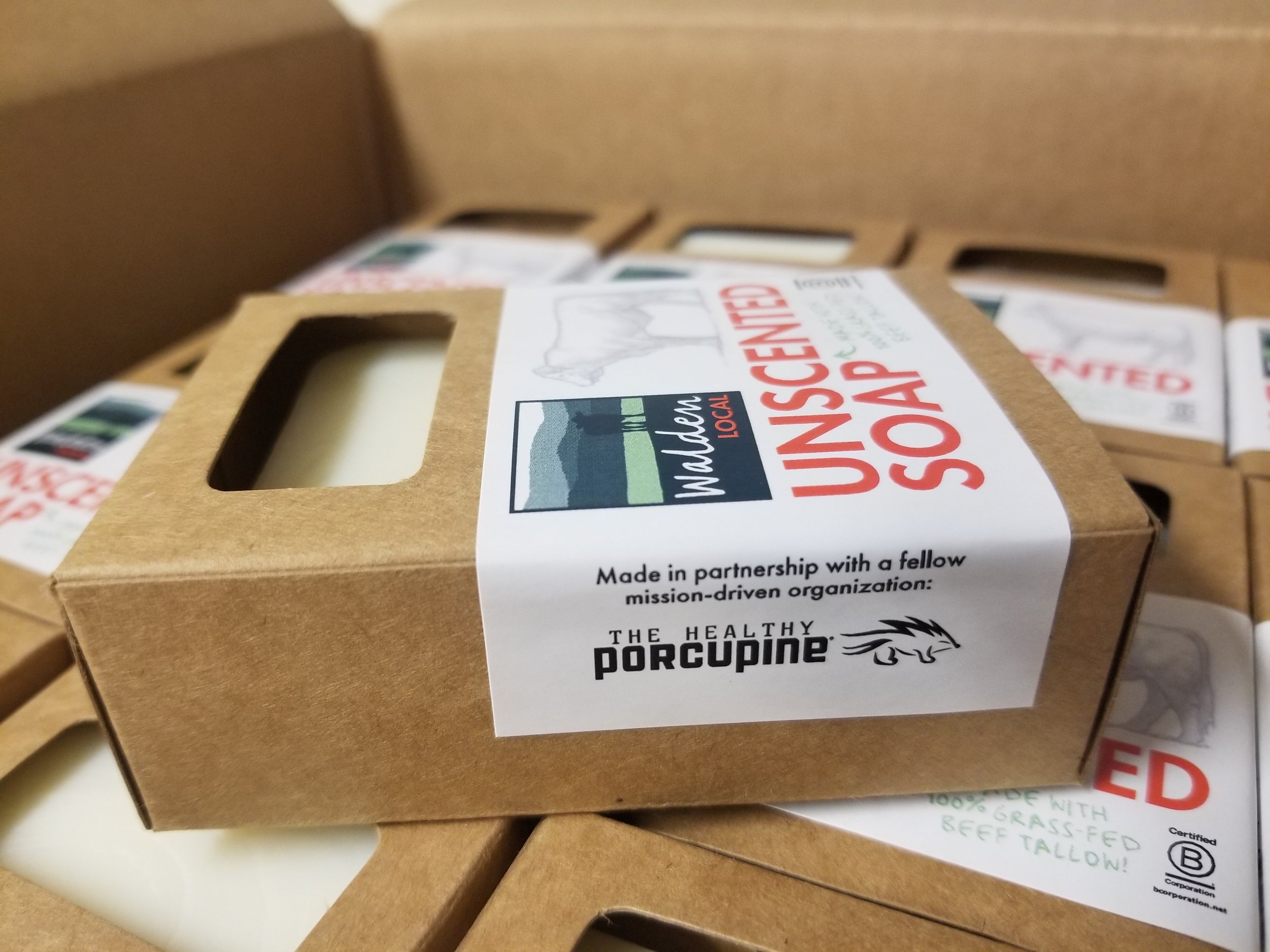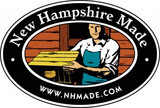We have been working with Walden Local Meat for quite some time, and we have exclusively purchased our suet from their farms for about a year. Walden Local is an incredible company that focuses on connecting farmers and their quality agricultural products to consumers. They found farmers in the New England and New York area doing everything right to feed and raise animals. They work with these local farmers to get their products packaged and delivered to the community. With nearly ten years of experience in the tallow industry, we really related to their mission and commitment to using and distributing sustainable, local, and nutrient-rich products. In our latest partnership with Walden Local, we are using their tallow to white label soaps and balms for them. Specifically, they will carry Unscented Soap (Healthy Porcupine Pure Tallow Soap) and Unscented Balm.
What is white labeling?
White label products are sold by retailers with their own branding and logo, but a third party manufactures them. The labeling will include the retailer's name prominently on the label and not the actual manufacturer, so the end product appears as though it has been produced by the retailer. A perfect example of this is Trader Joe's or Costco. It is no secret that these two grocery chains offer Trader Joe's or Kirkland brand products that other known retailers produce. In fact, according to MoneyWise, the Kirkland Brand coffee is actually made by Starbucks and simply white-labeled to be branded as Kirkland coffee. This is a very common occurrence for big-box retailers. You have likely seen this at your favorite grocery chain.
What are the benefits of white labeling?
There are many benefits to white labeling and a variety of reasons brands choose to go this route. Having quality products manufactured and labeled can save money on production costs and time. As an established soap brand with the necessary equipment and expertise, it is much easier for us to white label soaps for a brand instead of the brand starting to make soap from scratch. We also maintain quality control standards, so the brand can ensure the products they provide to their customers are of the highest quality. White labeling is also a great tool that allows brands to broaden the range of products they offer and provide more of what their customers need, increasing brand loyalty.
White Labeling vs. Private Labeling
White labeling is the process of selling an existing product through a different channel, usually with a tweak or two in terms of packaging, marketing, and pricing. This can be done so that you can increase your reach, gain exposure to new customers or move from one retailer to another. However, private labeling sells products to one specific brand to allow them sole access to use their branding. In other words, the manufacturer will produce an item specifically for a retailer like Target or Amazon, and the manufacturer is limited to selling that product to that brand exclusively.
White and private labeling are very common in many industries for goods and services. You can find white labeling and private labeling in clothing, food, electronics, technology, home goods, and more. It allows businesses of any size to diversify their income and product offerings and remain competitive in their industry and with their customers.
We white label our products for Walden Local and a few other wholesale clients. Whether our soaps are white-labeled or come with your favorite Healthy Porcupine logo, they are still quality, sustainable soaps that we are thrilled to share with the world. #OptOutOfTheChemicalLifestyle



